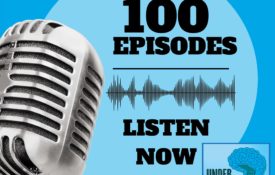-
Humans Will Trade Pain for Useless Information
People often go great lengths to earn a reward—no pain, no gain, as the saying goes. A new study published today in the Proceedings of the Royal Society B suggests that many will also go to great lengths for functionally worthless information, showing a willingness to endure physical pain for information about the value of a monetary reward, even when that information won’t affect its value. “This study gives us a vivid new window to understand how we motivate ourselves to seek information about our future,” says Ethan Bromberg-Martin, a neuroscientist at the Washington University School of Medicine in St. Louis who wasn’t involved in the study.
-
Want to Be More Successful? Neuroscience Shows Embracing a Growth Mindset Actually Changes How Your Brain Functions
-
Distracted Driving Is More Dangerous Than People Realize, New Research Shows
In 2021 more than 3,500 drivers in the U.S. alone died in traffic accidents linked to distracted driving. Using a cell phone is the primary source of distraction, but entering navigational information, trying to eat and performing other such activities can be just as risky. A new study in the Journal of Experimental Psychology: Applied suggests that distracted driving is even more unsafe than previously thought. Multitasking has a hidden cost for drivers that past analyses have not taken into account. In two experiments, participants between the ages of 18 and 58 completed a driving-related activity while also performing a distracting task.
-
2 Eye-Opening Findings That Challenge Our Perception of Loneliness
We don’t need science to tell us that being around our loved ones is good for our health, but it’s nice when research confirms our experience. A 2023 paper published in Science Advances found that people who had stronger social bonds, whether with their friends and family or with an extended group like their government or country, were less likely to be anxious or depressed compared to those who didn’t. The study also found that people who had an easy time connecting with society reported higher levels of well-being. These findings shed light on the importance of social bonds for our mental and emotional health.
-
A Psychologist Offers Advice on Redefining Life After Divorce
You’ve probably heard the rather alarming statistic that half of all first marriages end in divorce. In fact, the shift in American attitudes toward marriage over the last decade is palpable. Census data reveals that the rates of marriage and divorce have both declined between 2009 and 2019. This signals two important things to us: Fewer people are opting to commit to a traditional marriage No married couple is immune to relationship issues that can lead to divorce For many married people, the role of being a “husband” or a “wife” is an important part of their identity, and divorce can throw a wrench in their life as they know it.
-

Best Of: The Myers-Briggs Test, the Grieving Brain, Common Myths, More
Podcast: Excerpts from our first 100 episodes: a skeptical look at the Myers-Briggs test, what happens in the grieving brain, common myths of psychological science, and more.

